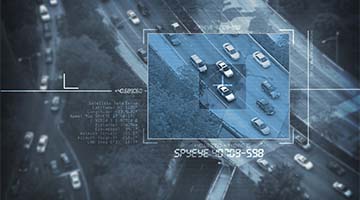Why study this course with LJMU?
- Taught by subject specialists with national and international reputations for their research and civic engagement
- Delivered using innovative teaching, learning and assessment methods, with options for fieldwork at home and overseas, with international study opportunities
- The teaching team are committed to sociology and criminology in action, and to making a difference in peoples' lives
- You will have opportunities to participate in 'out of classroom' learning activities including educational field visits to organisations, museums, art galleries, places of worship and walking tours
- Work placement opportunities in teaching, international development, charities, tourism, media, creative and heritage industries
- 91% of students surveyed said teaching staff on our Sociology courses were good at explaining things (National Student Survey 2024)
About your course
The BA (Hons) Criminology and Sociology at Liverpool John Moores University combines two contemporary and popular disciplines, providing you with grounding in core elements of both subjects, together with a wide range of optional modules that will enable you to follow your own pathway.
Throughout the course you will be encouraged to develop your critical thinking skills by questioning what we mean by the terms 'crime', 'criminals', 'punishment' and 'justice'. You will learn about the institutions of the criminal justice system and study areas like corporate crime, state crime, miscarriages of justice, policing and drugs. The two disciplines share many concerns, and our degree brings the two subjects together in ways which emphasise the areas of social policy, the variable impact of age, class, gender, sexuality, religion and ethics, disability and ethnicity on social life.
The degree is taught in the Sociology department, and your personal tutor will be a sociologist. The modules will be taught by a team of well-qualified, experienced and dedicated staff from the Sociology and Criminology departments.
You will study social science research methods, including qualitative surveys and qualitative techniques, and be provided with a thorough grounding in theoretical perspectives which are drawn upon in the critical investigations of societies and of criminology.
The degree carefully fosters an international perspective on society and criminology, considers the relationships between the local and the global, and includes opportunities to study abroad, undertake educational field work visits to South Asia or Europe.
Pathways can be built through the study of modules, which concentrate ecological issues, social policy and cultural analysis of media, music, sport and religion. You will also receive training in sociological methods and sociological and criminological theory.
The degree also offers you exciting work-based and work-related opportunities to gain professional experience relevant to your degree.
Foundation Year
The Foundation Year is ideal if you have the interest and ability to study for a degree, but do not have the qualifications to enter directly onto the Criminology and Sociology honours degree programme yet.
Once you pass the Foundation Year (level 3) you will progress directly onto the first year of the honours degree. If you are a full-time UK student, you will qualify for student financial support for the full duration of your course (subject to eligibility criteria).
Course modules
What you will study on this degree
Further guidance on modules
Modules are designated core or optional in accordance with professional body requirements, as applicable, and LJMU’s Academic Framework Regulations. Whilst you are required to study core modules, optional modules provide you with an element of choice. Their availability may vary and will be subject to meeting minimum student numbers.
Where changes to modules are necessary these will be communicated as appropriate.
Core modules
Preparing for Academic Success
30 credits
30 credits
This module provides you with the integrated skills required for academic success. It will enhance your knowledge and understanding of the terminology and expectations associated with higher education study and you will learn to identify, understand and demonstrate academic research, writing and referencing techniques.
Module topics will likely (but not wholly) include the following:
- Higher Education terminology and expectations
- Sourcing appropriate academic reading and resources
- Independent learning skills
- Academic Reading skills
- Writing skills
- Critical thinking skills
- Referencing skills
- Digital competency skills
Investigating Liverpool
30 credits
30 credits
This module will provide you with the necessary skills to develop a Liverpool focussed research project from your subject perspective. You will identify and locate relevant source material; outline how this source material can be used as a foundation for your research project and write a coherent piece of academic work which evidences understanding of Liverpool. The module will help you to develop an independent approach to learning and is likely (but not wholly) to address the following:
- Scouse exceptionalism and the portrayal of scousers
- Hillsborough
- Slavery
- Migrant Liverpool
- Liverpool riots
- Liverpool culture
- Educating Liverpool
- Policing Liverpool
- Media representations of Liverpool
Crime, Justice and Diversity
30 credits
30 credits
This module aims to raise your awareness of the different social factors which can impact on how crime is committed and against whom. The module also builds knowledge of the impact of social factors on crime and victimisation and how these impact on the lived experience of criminalisation, justice and harm. Module topics are likely (but not wholly) to include the following:
- Social Justice
- Age
- Class
- Gender
- Race
- Ability/disability
- Sexuality
- Mental illness
- Homelessness
- Nationality and Citizenship
- Social Harm
War: Conflict in the Humanities and Social Sciences
30 credits
30 credits
This module introduces you to key themes and perspectives in Humanities and Social Science through the cross disciplinary study of representations of, and responses to, war. It will include regular assessment tasks in order to support a structured approach to learning.
Core modules
Contemporary Social and Green Issues
20 credits
20 credits
This module enables you to examine contemporary social and environmental issues of prominence and it will demonstrate the contribution of different sociological approaches to your understanding. It will become apparent that a key strength of sociology is its diverse and challenging interpretations of social and green issues.
Introduction to Sociology
20 credits
20 credits
This module introduces students to the discipline of sociology, covering both classic and contemporary research as applied to issues of contemporary debate.
After completing the module the student should be able to:
- Reach informed judgements about the value of classic and contemporary approaches to sociology.
- Use their sociological imaginations to consider contemporary issues.
- Draw on the basic skills required for effective study and learning.
Becoming a Sociological Investigator
20 credits
20 credits
After completing the module you should be able to:
- Identify and reflect upon the following aspects of self-awareness in respect of personal development and career planning: strengths and weaknesses, motivations and values, ability to work with others.
- Design a qualitative research design.
- Collect and present qualitative data.
- Reflect on their experience of designing a qualitative research project.
- Reflect on their experience of collecting and presenting qualitative data.
An Introduction to Criminological Theory
20 credits
20 credits
This module will introduce you to a core of key theoretical perspectives within criminology. You will be encouraged to reflect upon the ways in which different theoretical strands have attempted to explain crime and criminal behaviour. This will foster an understanding of the reasons for these differences and similarities between different theoretical approaches.
Inside the Criminal Justice System
20 credits
20 credits
This module will introduce you to the roles, agencies and institutions key to the operation of the Criminal Justice System. You will outline the decision-making mechanisms and how the Criminal Justice System operates in practice. Alongside this, you will also consider the range of possible outcomes arising from involvement with the Criminal Justice System and the impacts of this for individuals, groups and communities.
Contemporary Issues in Criminology
20 credits
20 credits
This module will introduce you to a range of contemporary criminological issues and surrounding academic debates. You will be encouraged to explore the different ways key thinkers have attempted to explain contemporary criminological issues. This includes recognition of key social divisions that pervade crime, harms and criminal justice.
Core modules
Research in Action
20 credits
20 credits
In this module you will develop a range of essential qualitative research skills to undertake and reflect upon problem-solving research within a supportive environment. The module builds on the EBL in Level 4 and enhances your abilities to engage in research activities. The module includes a short field trip to apply methods in 'the real world' developing the transferable skills. For students who are intending to write a dissertation at Level 6, this module provides an essential grounding.
Key Thinkers for Criminology
20 credits
20 credits
This module will help you to critically evaluate the theoretical perspectives of a number of key thinkers in criminology. A review of existing literature will enable you to appreciate the intellectual histories of their work. In doing so, you will be able to evaluate the strengths and weaknesses of these theorists’ work for explaining crime and our responses to it.
Contemporary Perspectives in Criminology
20 credits
20 credits
This module will help you to understand the complexities of contemporary theoretical perspectives in criminology, moving beyond standard ‘textbook’ accounts of crime, deviance and/or social control. Using this knowledge you will be able to evaluate the relative strengths and weaknesses of contemporary accounts of crime and deviance in relation to their more established counterparts.
Optional Modules
Researching British Society
20 credits
20 credits
In this module you will learn to understand, evaluate and analyse the merits and shortcomings of secondary data analysis of a large quantitative dataset, downloadable from the UK Data Archive. You will use these skills to generate sociological arguments based upon a large dataset.
The Medicalised Body: the Sociology of Health and Illness
20 credits
20 credits
The first section of this module introduces you to the key areas in the sociology of health and illness, bringing together the contribution of different perspectives and methodological approaches which characterise sociological research in this area. It will allow you to understand the dominance of the biomedical model and how it has come to attempt to define experiences of health and illness. A sociological orientation will allow you to understand the importance of the social context in shaping the health of the nation. The second section will introduce you to the concept of medicalisation and we will use this lens to interrogate the ways in which bodies are 'othered', compartmentalised and treated differently. The related field of 'healthism' will further be explored and you will be challenged to consider the potential advantages and disadvantages of such processes in relation to the perceptions and treatment of certain bodies. We will use case studies of particular embodied experiences which will uncover the relationship some bodies have with nature, technology, society and structures that expose regimes of discipline, regulation, normalisation and surveillance. Students will have the opportunity to build on some of these themes at level 6 in the module 'Body Politics'.
Study Year Abroad CrimSoc
120 credits
120 credits
The aim is to provide students with an additional year of study at an approved overseas partner that will complement their programme at LJMU. This is an additional year of full-time study at an approved higher education institution. The modules to be studied must be agreed in advance, and must be appropriate for the student's programme of study. Assuming successful completion of this year, mark-bearing credit will be awarded by the Faculty Recognition Group. The grade conversion scale to be used will be made available in advance of the year abroad.
Musical Identities: Sociological Perspectives
20 credits
20 credits
After completing the module you should be able to:
- Utilise sociological perspectives on musical identities to place them within their historical and sociocultural contexts.
- Explain the connections between music and people's diverse identities via concrete case examples.
- Explain the role of music in expressing, reflecting and modelling diverse individual and group identities, including marginalised identities.
Sociology at Work 1
20 credits
20 credits
After completing the module you should be able to:
- Understand how sociological perspectives can be applied to enhance employability and careers.
- Evaluate a range of sociological theories on work.
- Reflect on the employability skills gained during the course and how to negotiate a sociology related work placement.
Tech-Topia: Social Media, Power and Activism
20 credits
20 credits
This module offers students a chance to examine the social significance of digital media in contemporary society. Beginning with an overview of the relationship between media and social change, the first part focuses on capitalism in its communicative form and develops a broad critique of digital power and inequality. The second part looks at the challenges encountered by social movements in contesting inequality by way of digital activism. A sample of research case studies will be considered as a means of evaluating the impact of online activism on participative democracy (e.g. BLM). The third part of the module will be dedicated to combining theory, practice and social critique, offering students a chance to develop a ‘guerrilla’ documentary praxis in producing a short activist documentary of their own.
Global Crime and Harm
20 credits
20 credits
It is increasingly recognised that globalisation, socio-economic and ecological interdependence, is revealed in the constant transition of people between places, societies and cultures, and globally generalised ecological impacts. Crime, its control, and social and environmental harms, transcend local and state borders – they have global dimensions. Global processes create newly marginalised and excluded groups, social constructions are destroyed, new ones emerge, organised and serious crime transcends traditional boundaries, places and identities. Globalisation also provides opportunities to contest these new elements of victimisation. This module will address these global dimensions of crime and harm, decolonise their criminological examination, explore emerging 'Southern' criminologies, Social Movements, resistance and the contested nature of crime and justice.
Victims and Justice
20 credits
20 credits
This module is concerned to address the substantive and growing criminological interest in the issue of victimisation. It explores different theoretical perspectives associated with the study of victims and the victims place within regulatory and criminal justice practices. It will encourage students to critically explore the state's recognition of and responses, to victims and their demands for justice, along with the work of groups that campaign on behalf of particular groups of victims. The module will involve students' participating in interactive 2-hour workshops involving lecture input, small group activities and IT skills; attending tutorial (drop-in) sessions and receiving input from guest speakers who are experts in their fields.
Crimes and Harms of the Powerful
20 credits
20 credits
This module intends to critically engage you with important questions around harm, responsibility, accountability and regulation. It seeks to explore how and why particular acts (or failures to act) by particular actors become viewed as ‘crimes’ worthy of criminal justice sanction, whilst others do not.
The module aims to apply the core concepts of harm, responsibility, accountability and regulation to the study of powerful people, groups and institutions. In doing so, it hopes to enhance your knowledge and understanding of social harm theory, the harms caused by state and state-corporate acts and omissions, the competing claims made around organisational and individual agency, and the problems and possibilities of different regulatory approaches.
Social Divisions and Social Justice
20 credits
20 credits
During this module, you will explore criminological theory which examines criminalisation, management and punishment of social divisions. You will use case studies to illustrate the management of social divisions across the policy terrains of penology and social policy. Alongside this, you will explore the impacts of criminalisation and punishment on different social divisions and how social justice might be achieved.
Optional Modules
Dissertation in Sociology
40 credits
40 credits
This module provides you with an opportunity to develop your own sociological specialism by conducting an extended, in-depth study on a freely chosen topic in sociology. You will plan and design an extended piece of academic work and present the completed work as a written dissertation whilst demonstrating a detailed and critical understanding of a relevant field of sociological enquiry. You will be supported through group seminars to successfully complete the dissertation and will work with a staff supervisor to develop a critical understanding of your research topic.
International Fieldwork in Sociology
20 credits
20 credits
This module provides the opportunity for you to undertake independent guided study on a topic, congruent with the aims and themes of the programme within an international context. You will also further develop a wide range of study skills in the process such as working in small groups, writing reflective blog posts, considering the ethics of blogging and social media and applying sociological concepts and ideas to an international setting. The module has a compulsory international fieldwork element incorporated which provides the backdrop to your study focus.
Sport, Crime and Politics: Critical Sociological Analyses
20 credits
20 credits
This module adopts various sociological and critical criminological approaches in the understanding of sport in contemporary societies. You will look at issues relating to recent transformations, prejudices and cultural cohesion in the world of sport, focusing in particular on developments relating to issues such as racism, nationalism, globalisation and gender prejudice. The module will also be centrally concerned with the transformation of sport in the light of ongoing changes to a consumerist society.
Body Politics: Gender, Sexuality and Society
20 credits
20 credits
In this module you will explore sociological and feminist debates around the body, gender and sexuality. You will engage with ideas which challenge the normative representations and 'taken for granted ideas' around body shape and image, gender and sexualities. It covers topics such as body modification, beauty, pornography, sex work, trans* identities and violences against the body.
Cultural Sociology of Music
20 credits
20 credits
This module aims to explain the place of music in society, using sociological theory to unlock the codes and secrets of musical culture and society. It is based on the premise that music is a social product, social resource and social practice. In doing so, the module focuses on the relationship between music and social life through a wide range of topics, including music as representation, the economy of music, the relationship between musical taste and social divisions, the political role of music, music as self-expression and political resistance, the changing media forms and technologies of sound production, the therapeutic potential of music, and more. In exploring these themes, you will consider all forms of music: popular, classical, folk and world, to reflect the vitality of musical expressions in the world today.
Visual Sociology
20 credits
20 credits
This module encourages students to think sociologically about the role of visual images and representation in social life, and be able to sociologically analyse and explain the role and meaning of representations.
Sociology at Work 2
20 credits
20 credits
This module provides students about to embark on their working lives with the opportunity to undertake a self-directed work placement relevant to the study of Sociology.
The aim is that students will be able to identify, assess and reflect upon how their skills and abilities transfer from their academic studies to the world of work and how these skills and abilities have been enhanced via their work placement.
The module also offers students opportunities to reflect on the links between their work placement experience and their programme of study.
Fear and Loathing: the politics and aesthetics of aversive emotion
20 credits
20 credits
This module will begin by examining major philosophical and theoretical approaches to the study of emotions. Thereafter the module will examine a series of case studies in aversive emotions such as fear, hate, anger, and disgust. By the end of the module, students will have a strong understanding of the ways in which we might approach the analysis of emotions, and will have covered a range of contemporary cases allowing them to unpick the politics and aesthetics of aversive emotion.
Cities
20 credits
20 credits
This module will equip students to discuss cities, urban processes and urban futures from a critical and sociological perspective. It will enhance their understanding of the nature, origins and consequences of urban issues. This module studies cities from a sociological perspective and is structured according to 3 main parts. Firstly, students will gain insights into the origins of urban sociology, especially its significance for the emergence of sociology as an academic discipline. We will read and discuss foundational texts and theories in early urban sociology. The second part of the module, will study the nature of urban politics focusing on questions of power and capital in the urban environment.
The last part of the module, interrogates several urban issues and their relationship to sociological categories such as class, gender, race and more. The emphasis of the module is not just that students engage with complex theories and texts, but also that students are able to develop alternative approaches and solutions to conflicts and issues that play out in the urban environment. Students are also encouraged to apply these theories to Liverpool and seek out examples and sites in our immediate urban environment that illustrate these points.
Imagined Communities: The Sociology of Nationalism
20 credits
20 credits
Module Overview: This module will give students the opportunity to engage with the dominant political ideology of our time, and draw a critical awareness to it and how it operates. The module begins by introducing students to the notion of everyday nationalism, helping to see the way nationalism is embedded in daily life, and then follows this with a discussion of the main theoretical approaches to nationalism. The second block will then consider some major approaches to nationalism, giving students the opportunity to consider how nationalism interacts with other major social categories and aspects of contemporary life. Finally, we will look at some case-studies that engage with historical and contemporary issues that provide an overview of how nationalism can be critically examined to understand the contemporary world, and how it came to be.
Green Criminology – Crimes and Harms to the Global Environment
20 credits
20 credits
This module will explore how 'green' or environmental' crime is conceptualised and addressed within Criminology, and related disciplines. You will examine how 'green' or 'environmental' crimes are perpetrated and the harms it generates for victims and society. In doing so, you will be able to assess the relative success and failure of regulatory and criminal justice frameworks in addressing 'green' or 'environmental' crime and associated harms.
Police, Power and Social Order
20 credits
20 credits
This module will encourage you to critically consider the exercise of police power and its relationship to ideas of social and political order and disorder. You will explore the origins of police, considering the development, expansion and transformation of policing in domestic, colonial and international settings. In doing so, you will foster a critical understanding of the policing of a range of marginalised, minority and dissenting/dissident populations.
Power, Politics, and Human Rights
20 credits
20 credits
This module was developed to provide a summative overview of the theoretical and philosophical underpinnings of Human Rights. Participation in this module will enable you to examine the ideas, theories, and politics of global human rights, as well as evaluating the discrepancy between the theory and practice of human rights.
Crime Media Culture
20 credits
20 credits
This module will aid your understanding of the multiple and complex links between crime, media and culture. Participation in the module will provide you with succinct knowledge as to how processes of 'cultural construction' are applied to a range of deviant/criminal sub-cultures. Alongside this, you will also have an opportunity to explore the growing criminological significance of a variety of new, popular and entertainment media.
Child and Youth Justice
20 credits
20 credits
This module will explore how the emergence and development of the youth justice system has served to recognise the special case of the child in conflict with the law. You will examine how criminology has sought to conceptualise and address the Youth Justice System and its impacts on children's and young people's lives and life chances. This will enable you to evaluate the Youth Justice System's attempts to address the deviant, criminal and violent behaviours of children and young people.
Security, Terrorism, and War
20 credits
20 credits
This module examines the challenges associated with defining and studying terrorism and insurgency. As a criminology student, you will assess how terrorism is constructed in social, political, legal, and media discourses. You will analyse how governments and nation-states respond and react to contemporary forms of terrorism in a globalised world, mapping the connections between organised crime and terrorist actors. Alongside this, you will also document the effects of counterterrorism and security policy on communities and counter-hegemonic politics.
Understanding and Challenging Inequalities and Stigma
20 credits
20 credits
This module will critically analyse theoretical explanations of inequalities, and stigma. As a criminology student, you will be expected to utilise a range of contemporary case studies to explore the experiences of stigmatised groups and as a means of developing your ability to critically apply criminological and sociological theoretical perspectives. Alongside this, you will explore the opportunities and barriers to addressing inequality and stigma, situating discussion within historical, social and political contexts.
Your Learning Experience
Excellent facilities and learning resources
We adopt an active blended learning approach, meaning you will experience a combination of face-to-face and online learning during your time at LJMU. This enables you to experience a rich and diverse learning experience and engage fully with your studies. Our approach ensures that you can easily access support from your personal tutor, either by meeting them on-campus or via a video call to suit your needs.
Teaching is delivered via lectures, seminars, workshops, audio-visual presentations, online activities and fieldwork trips. Online discussion boards allow you to further debate, with your tutors and peers, ideas that arise in the classroom. Outside the classroom you will have access to extensive electronic resources via the LJMU network and print resources via the nearby Aldham Robarts library.
Work-related Learning
Opportunities for work-based and work-related learning are integrated into the programme. This will offer you the chance to put what you have learnt into practice, as well as providing new skills and experiences. It will also add real value to your CV, giving you a professional edge when you come to negotiate your way through the graduate job market.
Careers events and information on volunteering opportunities are incorporated into core modules and you will have the option to undertake placements at Level 6.
You will be encouraged to undertake a work placement during your studies.
Dedicated personal tutor, plus study skills support
If you choose to study Criminology and Sociology, you will join a friendly and stimulating environment in which you will be encouraged to achieve your full potential in both your academic work and your future career. We pride ourselves on our informal and supportive relationships with our students.
You will be assigned a personal tutor who will be responsible for your academic and personal progress throughout your studies. Along with this scheduled one-to-one support, you will receive regular feedback and guidance from your module tutors on your research, writing and study skills.
Assessment varies depending on the modules you choose, but will usually include a combination of exams and coursework.
We understand that all students perform differently depending on how they are assessed, so we use a range of traditional and innovative assessment methods. These include essays, exams, reports, individual and group presentations, policy analyses, online tests, wikis, critical reviews, posters and group work. Approximately 75% of your assessments will be by coursework and the rest by exam, but this varies according to the options you choose.
Constructive feedback on your assessed work is designed to help you achieve your full potential and get the most out of your studies. Your tutors will provide this in writing, by email or in face-to-face meetings where they will help you identify your strengths as well as areas where you may need to put in more work. They can also direct you to further support if you feel you need it.
Where you will study
The School of Humanities and Social Science offers an ideal environment in which to expand your knowledge and horizons. Situated on Mount Pleasant in the new ‘Knowledge Quarter ' of Liverpool, the School is home to five subject areas: English, History, International Relations, Sociology, and Media, Culture & Communication. It has a lively programme of cross-disciplinary research seminars, conferences, visits from international scholars and public events. Research from the School is recognised nationally and worldwide.


Providing me with the critical, analytical and literary skills that prove so attractive to future employers, LJMU gave me the application, confidence and belief that I may achieve whatever I set out to accomplish.
Career paths
Criminology and Sociology graduates enter a variety of professions and careers, including:
- local and national government and the civil service
- youth work
- criminal justice system
- academia and teaching
- career guidance
- research
- journalism
- third sector advocacy
- think tanks
- policy development
In addition, our graduates find opportunities in police and probation services; human resource management; legal service; marketing and advertising; ICT development; business and finance; publishing; health services and health promotion; public health; ecology and environmental campaigning; international development; policy and administration; Government advice; the children's and young people's workforce; social services, and youth work and the youth justice workforce.
Student Futures - Careers, Employability and Enterprise Service
A wide range of opportunities and support is available to you, within and beyond your course, to ensure our students experience a transformation in their career trajectory. Every undergraduate curriculum includes Future Focus during Level 4, an e-learning resource and workshop designed to help you to develop your talents, passion and purpose.
Every student has access to Careers Zone 24/7, LJMU's suite of online Apps, resources and jobs board via the LJMU Student Futures website.
Tuition fees and funding
- Foundation first year:
- £5,760
- Second and subsequent years:
- £9,535
The University reserves the right to increase tuition fees in accordance with any changes to the maximum allowable fees set by the UK Parliament. In the event of such a change, any fee increase will be subject to a maximum cap of 10% of the total course cost as originally stated at the time of your offer.
The fees quoted above cover registration, tuition, supervision, assessment and examinations as well as:
- library membership with access to printed, multimedia and digital resources
- access to programme-appropriate software
- library and student IT support
- free on-campus wifi via eduroam
Additional costs
Although not all of the following are compulsory/relevant, you should keep in mind the costs of:
- accommodation and living expenditure
- books (should you wish to have your own copies)
- printing, photocopying and stationery
- PC/laptop (should you prefer to purchase your own for independent study and online learning activities)
- mobile phone/tablet (to access online services)
- field trips (travel and activity costs)
- placements (travel expenses and living costs)
- student visas (international students only)
- study abroad opportunities (travel costs, accommodation, visas and immunisations)
- academic conferences (travel costs)
- professional-body membership
- graduation (gown hire etc)
Funding
There are many ways to fund study for home and international students. From loans to International Scholarships and subject-specific funding, you'll find all of the information you need on our specialist funding pages.
- Full-time per year:
- £17,750
International Scholarships and payment plans
Liverpool John Moores University is committed to supporting international students by providing a range of scholarships and flexible payment plans to help students manage their tuition fees.
Scholarships
LJMU provides a variety of scholarships to support international students. Scholarships are available to self-funded students who have accepted their offer and met all the conditions outlined in their offer letter. Students must also demonstrate that they can cover living costs, travel, and other expenses associated to studying at the university. Postgraduate scholarships include tuition fee reductions and are often offered in partnership with external funding organisations.
All self-funded international students are eligible for an automatic scholarship worth up to £4,000. For more details and to view our full list of scholarships, visit the international scholarship webpages.
Deposit
All students must pay a £5,000 deposit before they can receive their CAS letter.
For more information view our deposit page.
Tuition Fee Payment Plan
After paying their £5,000 deposit, students have the option to pay their fees in full or in three equal instalments minus any internal scholarships and discounts. There are two payment options available for international students. You can either pay your tuition fees in full before enrolment or opt for a payment plan. With the payment plan, you can pay your fees in three instalments after making your £5,000 deposit. The first instalment is due before enrolment.
All payments should be made through Flywire. Full details can be found in the How to Pay Guide.
Early Bird Tuition Fee discount
We are excited to introduce a £500 Early Payment Discount to all self-funded international students. Eligible self-funded students who pay their fees by the required deadlines will get a discount which will be automatically deducted from the 1st year of tuition fees.
To see the required deadlines please visit the webpage
Entry requirements
Please choose your qualifications below to view requirements
Grades/points required from qualifications: DDD-CDD (72-80)
Work out how many UCAS points your qualifications are worth by visiting the UCAS Tariff Calculator.
Qualification requirements
GCSEs and equivalents
A levels
DDD-CDD
BTECs
Extended Diploma: MMP
Access awards
International Baccalaureate
Acceptable on its own and combined with other qualifications
OCR Cambridge Technical
Extended Diploma: MMP
Irish awards
Irish Highers: Acceptable on its own and combined with other qualifications.
T levels
International requirements
Other international requirements
International applications will be considered in line with UK qualifications. Any Applicant whose first language is not English will be required to have IELTS 6.0 (minimum 5.5 in each component)
Please Note: All international qualifications are subject to a qualification equivalency check.
How to apply
Securing your place at LJMU
UCAS is the official application route for our full-time undergraduate courses. Further information on the UCAS application process can be found here https://www.ljmu.ac.uk/study/undergraduate-students/how-to-apply.
Applications are welcomed from mature and non-standard applicants, who will be considered on an individual basis.
These applicants may be required to submit an essay and/or attend an interview, and should demonstrate potential and motivation and/or have relevant experience.
International applications will be considered in line with UK qualifications.
Your university life
From accommodation and academic support to clubs and societies. Find out what LJMU has to offer.
Related Links
Talk to our students
Connect with a current LJMU student for advice and guidance on university life, courses and more.
See what our students are saying
At LJMU we want you to know you're making the right choice by studying with us. You can see what our students are saying about their experience with us through their reviews on the following websites:
Related Links
News and views
Browse through the latest news and stories from the university









The university reserves the right to withdraw or make alterations to a course and facilities if necessary; this may be because such changes are deemed to be beneficial to students, are minor in nature and unlikely to impact negatively upon students or become necessary due to circumstances beyond the control of the university. Where this does happen, the university operates a policy of consultation, advice and support to all enrolled students affected by the proposed change to their course or module.
Further information on the terms and conditions of any offer made, our admissions policy and the complaints and appeals process.

















